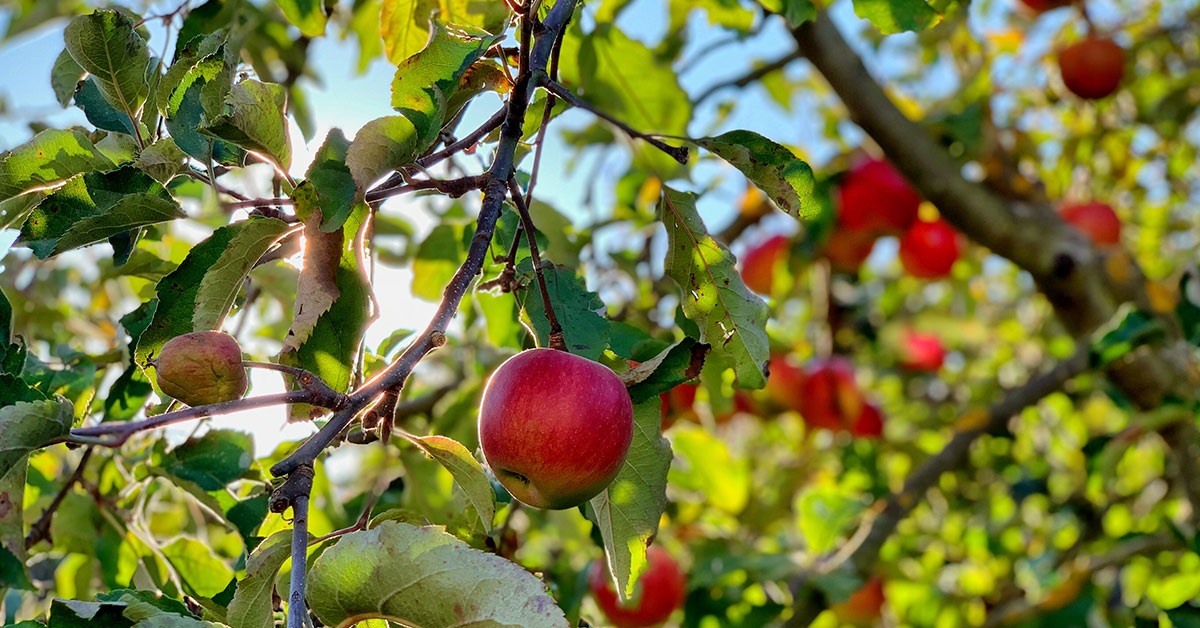Welcome to our comprehensive guide on the best fruit trees to grow in Zone 7! If you are an avid gardener residing in this region, you are in luck, as Zone 7 offers a favorable climate for a wide variety of fruit trees. Located in the United States, Zone 7 experiences mild winters and moderate summers, making it an ideal environment for fruit tree cultivation.
Whether you are a beginner or an experienced gardener, this article will provide you with valuable insights on the top fruit trees that thrive in Zone 7, allowing you to enjoy a bountiful harvest of delicious fruits right in your backyard. So, let’s dive in and discover the perfect fruit trees to enhance your garden and delight your taste buds!
The best fruit trees to grow in Zone 7
When it comes to growing fruit trees in Zone 7, it’s essential to choose varieties that are well-suited to the specific climate and conditions of the region. The good news is that there are several **fruit trees** that thrive in Zone 7, providing gardeners with a bountiful harvest of delicious fruits. Here are some of the best fruit trees to consider for your Zone 7 garden:
- Apple Trees: Apples are a classic favorite and can be successfully grown in Zone 7. Varieties such as ‘Fuji,’ ‘Gala,’ and ‘Honeycrisp’ are known for their excellent flavor and adaptability to various climates. Make sure to select disease-resistant cultivars to ensure healthy growth.
- Peach Trees: Peaches are a delightful addition to any garden, and Zone 7 offers suitable conditions for their cultivation. Varieties like ‘Redhaven,’ ‘Elberta,’ and ‘Contender’ are known for their juicy, flavorful fruits. Ensure that you provide them with ample sunlight and well-draining soil.
- Pear Trees: Pears are another excellent choice for Zone 7 gardens. Varieties such as ‘Bartlett,’ ‘Anjou,’ and ‘Comice’ are well-suited to this region. Pears require well-draining soil and benefit from regular pruning to maintain their shape and promote fruit production.
- Cherry Trees: Cherries are a delightful treat, and certain varieties thrive in Zone 7. ‘Stella,’ ‘Bing,’ and ‘Rainier’ cherries are popular choices known for their sweet flavor. Ensure that you provide them with adequate sunlight and protection from strong winds.
- Plum Trees: Plums are a versatile fruit that can be enjoyed fresh or used in various culinary creations. Varieties like ‘Methley,’ ‘Santa Rosa,’ and ‘Shiro’ are well-suited to Zone 7. Plum trees require well-drained soil and benefit from regular pruning to maintain their shape and encourage fruiting.
- Apricot Trees: Apricots are a delicious and nutritious fruit that can thrive in Zone 7. Varieties such as ‘Moorpark,’ ‘Blenheim,’ and ‘Goldcot’ are known for their flavorful fruits. Apricot trees require well-draining soil and benefit from regular watering during dry periods.
Remember, when selecting fruit trees for Zone 7, it’s crucial to consider factors such as chill hours, disease resistance, and pollination requirements. Consult with local nurseries or gardening experts to ensure you choose the best varieties for your specific location. With proper care and attention, these **fruit trees** will reward you with a fruitful harvest year after year in Zone 7.
Avoid growing these fruit trees in Zone 7
When it comes to selecting fruit trees for Zone 7, it is essential to consider the specific climate and growing conditions of the region. While there are numerous fruit trees that thrive in this zone, there are a few varieties that should be avoided due to their inability to withstand the colder temperatures and shorter growing seasons. Here are some fruit trees that are not recommended for Zone 7:
- Citrus Trees: Citrus trees, such as oranges, lemons, and limes, are not suitable for Zone 7 due to their sensitivity to cold temperatures. These trees require a more tropical or subtropical climate, with mild winters and warm summers.
- Avocado Trees: Avocado trees are also not well-suited for Zone 7 as they are highly sensitive to frost and cold temperatures. These trees thrive in warmer climates, typically found in Zones 9 and above.
- Mango Trees: Similar to citrus and avocado trees, mango trees are not suitable for Zone 7 due to their tropical nature. They require a consistently warm climate and cannot tolerate freezing temperatures.
- Pineapple Trees: Pineapple trees are not recommended for Zone 7 as they are native to tropical regions and require a warm and humid climate to thrive. The cold winters in this zone would severely impact their growth and survival.
- Banana Trees: Banana trees are another fruit tree variety that should be avoided in Zone 7. These trees are highly sensitive to cold temperatures and require a frost-free environment to produce fruit successfully.
While these fruit trees may not be suitable for Zone 7, there are plenty of other options that can thrive in this region’s climate. It is always best to choose fruit trees that are well-adapted to the specific growing conditions of your area to ensure a successful harvest.
Fruit tree growing tips
Growing fruit trees in Zone 7 can be a rewarding and fruitful experience. With proper care and attention, you can enjoy a bountiful harvest of delicious fruits. Here are some tips and best practices to help you succeed:
- Choose the right fruit trees: Opt for fruit tree varieties that are well-suited to the climate and conditions of Zone 7. Some of the best fruit trees to grow in this zone include apple trees, peach trees, pear trees, cherry trees, and plum trees. Research specific varieties that are known to thrive in your region.
- Consider chill hours: Chill hours refer to the number of hours a fruit tree needs to be exposed to temperatures below 45°F (7°C) during its dormant period. Make sure to select fruit tree varieties that have a suitable chill hour requirement for Zone 7. This will ensure proper fruit set and development.
- Site selection: Choose a location in your garden that receives full sun for at least 6-8 hours a day. Fruit trees require ample sunlight to produce high-quality fruits. Additionally, ensure the site has well-draining soil to prevent waterlogging, which can lead to root rot.
- Soil preparation: Before planting your fruit trees, prepare the soil by incorporating organic matter such as compost or well-rotted manure. This helps improve soil fertility, drainage, and moisture retention. Conduct a soil test to determine the pH level and make any necessary adjustments to ensure optimal growing conditions.
- Planting: Dig a hole that is wide and deep enough to accommodate the tree’s root system. Place the tree in the hole, making sure the bud union (the swollen area where the tree was grafted onto the rootstock) is above the soil line. Backfill the hole with soil, firming it gently around the roots. Water thoroughly after planting.
- Watering: Adequate and consistent watering is crucial for the establishment and growth of fruit trees. Water deeply once or twice a week during dry periods, ensuring the soil is moist but not waterlogged. Mulching around the base of the tree helps retain moisture and suppresses weed growth.
- Pruning and training: Prune your fruit trees during their dormant season to remove dead, damaged, or diseased branches. Also, thin out crowded branches to improve air circulation and sunlight penetration. Proper training, such as espalier or trellising, can help manage the tree’s size and shape, making it easier to care for and harvest.
- Fertilizing: Fruit trees benefit from regular fertilization to promote healthy growth and abundant fruit production. Apply a balanced organic fertilizer in early spring and again in late summer. Follow the manufacturer’s instructions for application rates and timing.
- Pest and disease management: Monitor your fruit trees regularly for signs of pests or diseases. Common pests in Zone 7 include aphids, codling moths, and plum curculios. Use organic pest control methods such as insecticidal soaps or horticultural oils when necessary. Proper sanitation, including removing fallen fruits and leaves, can help prevent disease outbreaks.
- Winter protection: Zone 7 experiences cold winters, so it’s essential to protect your fruit trees from frost and freezing temperatures. Consider using frost blankets or wrapping the trunks with burlap to shield them from extreme cold. Applying a layer of mulch around the base of the tree helps insulate the roots.
By following these tips and best practices, you can successfully grow the best fruit trees in Zone 7 and enjoy a fruitful harvest for years to come. Happy gardening!

